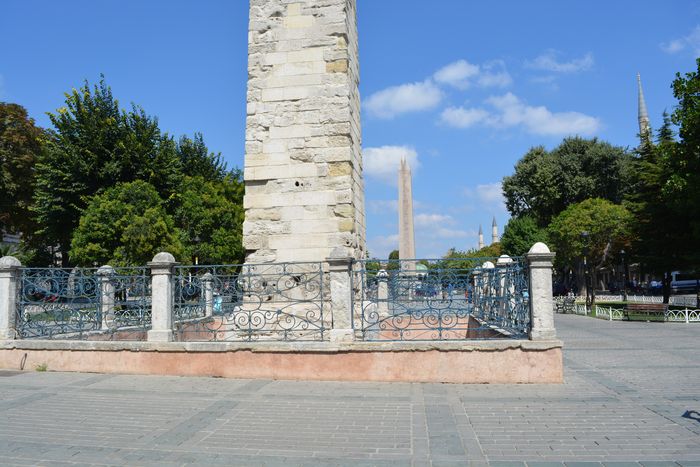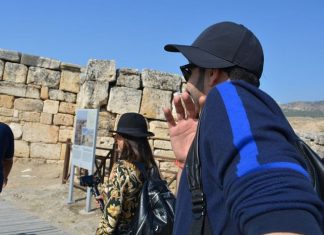46. At that first interview, my words were distinguished neither by their fluency nor by their elegance, but I told him about my family and the sort of education I had received in literature. As for Constantine, he was affected by a strange feeling of pleasure, as inexplicable as the divinely-inspired utterance of men in a trance. So influenced was he at the first sound of my voice that he almost embraced me.
Other men had the right of access to him at set times and for a limited period, but to me his heart’s doors were now thrown wide open, and gradually, as I became more intimate with him, he shared with me all his secrets. Please do not blame me if I have wandered somewhat from the main theme of my history, and please do not imagine that this digression is mere self-advertisement. If I have indulged in a certain amount of personal reminiscence, at least it is all directly concerned with the main thread of the story. Without disclosing the reason for it, it would have been impossible for me to speak of that first interview; and, of course, if I wished to explain the reason, it was essential to introduce some remarks on my own career.
Long a preface was necessary
My history must be written in a methodical way: first the reference to my source, then the sifting of evidence, and finally the account of subsequent events. That is why so long a preface was necessary. Now that I have introduced myself with such a wealth of detail into this part of the history, I can assure you that my evidence will avoid all falsehood; whatever is not said, will remain hidden, but none of the things I am going to say will be of doubtful veracity.
47. Constantine had no very clear conception of the nature of monarchy. He failed to realize that it entailed responsibility for the well-being of his subjects, and that an emperor must always watch over the administration of his realm and ensure its development on sound lines.
To Constantine the exercise of power meant rest from his labours, fulfilment of desire, relaxation from strife. He had entered the harbour of the palace, so to speak, to enjoy the advantages of a calm retreat and to avoid the duties of helmsman in the future. As for the administration of public affairs, and the privilege of dispensing justice, and the superintendence of the armed forces, they were delegated to others.
Read More about Zoe and Theodora part 28








